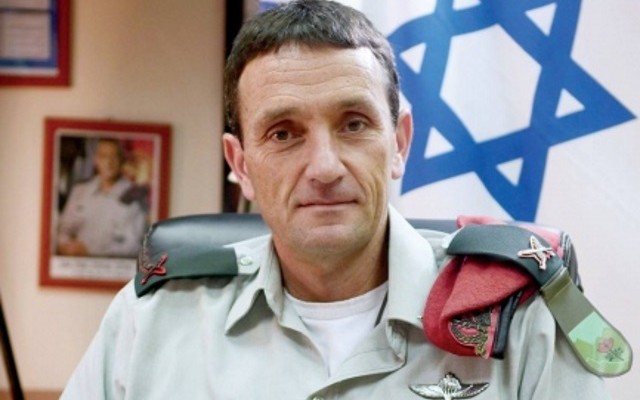Addressing the many regional threats Israel faces, Brig. General Herzl Halevi stressed that Iran was the driving force behind multiple forms of terrorism in Israel, Gaza and Syria.
By: Aryeh Savir, World Isrel News
Iran is one of the driving forces behind the wave of almost daily Palestinian terrorist attacks and is funding it, Israel’s military intelligence chief said on Sunday.
Addressing the Conference of Presidents of Major American Jewish Organizations in Jerusalem, Brig. General Herzl Halevi, chief of the IDF’s Intelligence Directorate, said that “in past months we see that Iran is willing to give money to families of terrorists who have stabbed Israelis,” providing them with financial incentive to carry out these mostly suicidal attacks. The funds, sometimes in the form of monthly stipends, are provided to the families of the terrorists.
Addressing the threat posed by Palestinian terrorist organizations in Gaza, Halevi said that Israel is trying to rebuild Gaza after the destruction it incurred during Operation Protective Edge, “because we understand that they have to have what to lose” if they attack Israel again.
Israel allows the entry of some 900 trucks a day carrying building materials, even though Israel knows that some of the materials are stolen by Hamas and used to build their terror tunnels and military fortifications, he said.
Another threat Halevi spoke about was what he termed as “silent terror,” the terrorism imported by migrants from the Middle East into Europe. Pointing to the fact that refuges, primarily from Syria, have irrevocably changed the face of Europe, he expressed fears that a similar scenario could unfold in Israel. “We see tens of thousands of people from Gaza and Judea and Samaria who can get organized one morning and march” on Israel.
He estimated that Iran will abide by the nuclear agreement in the coming years, but said that it is the belief among the intelligence community that the P5+1 powers lead by President Barack Obama could have achieved a better deal.
Finally, the intelligence chief doubted the ability of international mediators to bring calm to Syria through a cease fire. He said the best possible scenario Syria can hope for at this time is a limited period of calm at specific areas, but he does not believe a final peace agreement in on the horizon.





